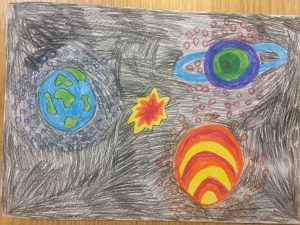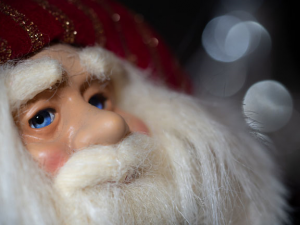National Life Stories at the Bristish Library
December 2018
‘A spirit of Christmas’
In 1999 a fifteen year old girl was interviewed at her home in Shrewsbury for the enormous BBC/British Library oral history project ‘The Century Speaks’. In a bedroom decorated with X-Files posters – partly reflecting her belief in government conspiracies – she spoke with considerable charm about other beliefs, including the belief in ‘a spirit of Christmas’. Keep reading here…
‘The complexity of religious identity and religious unbelief within individual British Hindus’
At the British Library – accessible through its Listening and Viewing Service – there is a rich, untapped resource for those interested in religion and global society. Called Millennium Memory Bank, it is a collection of 5,439 life story interviews with people across the UK, aged between 5 and 107, from a range of social, ethnic and religious backgrounds, recorded in 1998 and 1999 in the BBC’s Millennium Oral History Project – ‘The Century Speaks’. As part of a study of unbelief in oral history collections, supported by National Life Stories and the Understanding Unbelief programme at the University of Kent, I have been searching Millennium Memory Bank for moments in which interviewees from non-Christian backgrounds – often born in countries other than the UK – talk about not believing in God and/or their lack of engagement with religion. In particular, I have attended to what Understanding Unbelief calls ‘hybrid configurations’ of unbelief within individuals. Keep reading here…
November 2018
‘Valuing religion without believing’
In a recent collaboration between National Life Stories at the British Library and the Understanding Unbelief programme at the University of Kent, I have been exploring three collections of oral history interviews at the British Library for moments when interviewees talk about not believing in God or gods, lack of interest in and/or engagement with religion, and existential beliefs held in the absence of religious belief: C1364 ‘An Oral History of the Water Industry’, C409 ‘NLSC: City Lives’ and C900 ‘Millennium Memory Bank’.
This may, at first glance, seem a curious, even eccentric endeavour. But unbelief itself is far from eccentric – the majority of people living in the UK say they have ‘no religion’ and all evidence suggests that most of these are also either atheist or agnostic. Furthermore, as the ‘background’ to the Understanding Unbelief programme makes clear, the work is necessary as very little is known about religious unbelief, beyond the well-known public arguments of the New Atheists and other high-profile commentators. Keep reading here…
October 2018
‘Religious unbelief in the life of Professor Sir Fred Holliday’
Over half of respondents in the most recent British Social Attitudes survey indicated that they have ‘no religion’. All evidence suggests that the majority of this group are also either atheist or agnostic. We are able to say, then, that religious unbelief affects a very significant proportion of British people, but what else can we say about it? Religious Unbelief is little studied and not well understood, a situation that the £2.3m Understanding Unbelief project at the University of Kent seeks to change.
In a partnership with the Understanding Unbelief project, National Life Stories at the British Library is examining some of its collections of oral history recordings, with unbelief firmly in mind. What do interviewees – recorded in projects with no particular focus on religion – say about their lack of religious belief? This blog reports on one discovery: the presence of unbelief in an interview with Professor Sir Fred Holliday, recorded in a number of sessions between 2009 and 2011, part of the collection ‘An Oral History of the Water Industry’. Keep reading here…
September 2018
‘English atheist’

Growing Up Nonreligious Childhood Project
Sound and Vision Recording of the Week: Nearly twenty years ago, on the 4th of March 1999, an interviewer working for BBC Radio Thames Valley’s contribution to the enormous BBC Millennium Oral History Project – ‘The Century Speaks’ – visited a local school to interview an 11 year-old girl. She was one of the youngest interviewees among a UK ‘sample’ of over 5000. The opening question produced a response which clearly surprised the interviewer, listen here…
